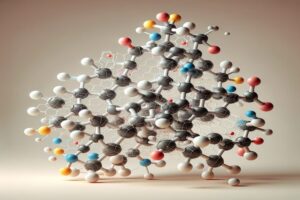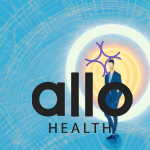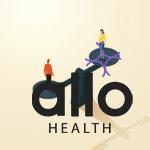Dht and Erectile Dysfunction
"The following blog article provides general information and insights on various topics. However, it is important to note that the information presented is not intended as professional advice in any specific field or area. The content of this blog is for general educational and informational purposes only.
Book consultation
The content should not be interpreted as endorsement, recommendation, or guarantee of any product, service, or information mentioned. Readers are solely responsible for the decisions and actions they take based on the information provided in this blog. It is essential to exercise individual judgment, critical thinking, and personal responsibility when applying or implementing any information or suggestions discussed in the blog."
Are you one of the many men who have experienced erectile dysfunction (ED)? It’s a common problem that affects men of all ages, and the causes can be complex and varied. One factor that is increasingly being studied in relation to ED is DHT, or dihydrotestosterone – a hormone that plays a crucial role in male sexual development and function. In this article, we’ll take an in-depth look at the relationship between DHT and ED.
What is DHT and how does it affect the body?
DHT is a hormone that is derived from testosterone – another hormone that plays a vital role in male growth and development. DHT is crucial for the growth and maintenance of male reproductive organs, including the prostate, testicles, and penis. It also helps maintain muscle mass, bone density, and body hair. However, high levels of DHT can lead to androgenic alopecia, acne, and other health problems.
Research has shown that DHT levels can also affect mental health. High levels of DHT have been linked to an increased risk of depression and anxiety in men. This is because DHT can affect the levels of neurotransmitters in the brain, which are responsible for regulating mood and emotions.
Additionally, DHT levels can be influenced by diet and lifestyle factors. Consuming a diet high in processed foods and sugar can increase DHT levels, while regular exercise and a diet rich in fruits and vegetables can help to lower DHT levels. It is important to maintain a healthy balance of DHT in the body to ensure optimal physical and mental health.
The role of DHT in sexual health
When it comes to sexual health, DHT plays a crucial role in the development and function of the male reproductive system. It helps regulate sperm production, and also affects libido and sexual desire. In fact, DHT is considered one of the key hormones involved in male sexual function.
However, excessive levels of DHT can also lead to negative effects on sexual health. For example, it has been linked to an increased risk of prostatic hyperplasia and male pattern hair loss. It is important to maintain a healthy balance of DHT in the body to ensure optimal sexual health.
Understanding Erectile Dysfunction: Causes and Symptoms
ED can be caused by a variety of factors, including physical, psychological, and lifestyle-related factors. Common symptoms include difficulty achieving an erection or maintaining an erection that is firm enough for sexual activity, reduced sexual desire, and premature ejaculation. Many men find ED to be a distressing and debilitating condition that can negatively impact their quality of life.
It is important to note that ED can also be a symptom of an underlying medical condition, such as diabetes, high blood pressure, or heart disease. In some cases, medications used to treat these conditions can also contribute to ED. It is important for men experiencing ED to speak with their healthcare provider to determine the underlying cause and explore treatment options. Treatment may include lifestyle changes, medication, or therapy.
The Connection Between DHT and Testosterone Levels
Testosterone and DHT are closely related, and levels of both hormones can have sexual side effects. Testosterone is converted to DHT by an enzyme called 5-alpha reductase, which is found in the prostate and other areas of the body. This conversion process can lead to an increase in DHT levels, which can impact sexual function in ways we’ll explore in more detail shortly.
One of the main functions of DHT is to promote the growth and development of male sex organs, including the prostate gland. However, high levels of DHT can also lead to prostate enlargement and prostate cancer, which can cause urinary problems and other issues. This is why some men with prostate problems are prescribed medications that block the conversion of testosterone to DHT called 5-Alpha Reductase Inhibitors.
In addition to its effects on sexual function and prostate health, DHT has also been linked to certain adverse side effects like hair loss. High levels of DHT can cause long term clinical implications such as causing hair follicles to shrink and eventually stop producing hair, leading to male pattern baldness. This is why some hair loss treatments, such as finasteride, work by blocking the conversion of testosterone to DHT.
How DHT Levels Can Impact Erectile Function
High DHT levels have been linked to an increased risk of developing ED. This is because DHT can cause the smooth muscle tissue in the penis to contract, leading to reduced blood flow and difficulty achieving an erection. Additionally, it can cause the prostate gland to enlarge, which can put pressure on the urethra – the tube that carries urine and semen out of the body – and lead to difficulties with urinary function as well as sexual function.
On the other hand, low levels of DHT have also been associated with sexual dysfunction of the external genitalia. This is because DHT plays a crucial role in the development and maintenance of male sexual characteristics, including the growth of facial and body hair, deepening of the voice, and the production of sperm. Therefore, insufficient levels of DHT can lead to a decrease in libido, as well as side effects in the Erectile Function Domain.
It is important to note that DHT levels can be influenced by a variety of factors, including genetics, age, and lifestyle choices. For example, certain medications, such as finasteride, are designed to lower DHT levels and are commonly used to treat conditions such as enlarged prostate and male pattern baldness. However, these medications can also have negative effects on sexual function and should be used with caution.
Can DHT Inhibitors Help Treat Erectile Dysfunction?
DHT inhibitors are a class of medications that work by blocking the action of 5-alpha reductase, the enzyme that converts testosterone to DHT, which is active androgen. This can help reduce DHT levels in the body, which can in turn improve sexual function. However, DHT inhibitors can have side effects such as reduced libido, decreased ejaculate volume, and breast enlargement. Additionally, they are not effective for all men with ED, and may not be appropriate in all cases.
It is important to note that DHT inhibitors are not the only treatment option for erectile dysfunction. Other medications, such as phosphodiesterase type 5 inhibitors (PDE5 inhibitors), can also be effective in treating ED. PDE5 inhibitors work by increasing blood flow to the penis, which can help improve erectile function.
In addition to medication, lifestyle changes such as exercise, a healthy diet, and stress reduction can also help improve androgen function. It is important to talk to your healthcare provider about the best treatment options for your individual needs and to address any underlying health conditions that may be contributing to your ED.
Combining Different Treatments for Optimal Results in ED Treatment
For some men, a combination of treatments may be the most effective way to address ED and other sexual health concerns. This might include medication, lifestyle changes, and other therapies such as psychotherapy or acupuncture. It’s important to work closely with your healthcare provider to develop a treatment plan that is tailored to your individual needs and goals.
It’s also important to note that combining treatments may not be necessary or appropriate for every individual. Your healthcare provider will take into account your medical history, current medications, and other factors to determine the best course of treatment for you. Additionally, it’s important to communicate openly with your partner about any concerns or challenges you may be experiencing with ED, as this can help to reduce stress and improve intimacy in your relationship.
Lifestyle Changes to Support Healthy Hormonal Balance
While DHT and testosterone are important hormones for male health and sexual function, it’s also important to maintain healthy hormonal balance overall. This can be achieved through a variety of lifestyle factors, including a healthy diet, regular exercise, stress reduction techniques, and getting enough sleep. In addition, avoiding certain environmental toxins and endocrine disruptors – such as bisphenol A (BPA) and phthalates – can also help support healthy hormone levels.
A healthy diet is essential for maintaining hormonal balance. Eating a balanced diet that includes plenty of fruits, vegetables, whole grains, and lean proteins can help support healthy hormone levels. It’s also important to limit your intake of processed foods, sugary drinks, and alcohol, as these can disrupt hormonal balance.
Regular exercise is another important factor in maintaining healthy hormone levels. Exercise can help reduce stress, improve sleep quality, and promote overall health and well-being. Aim for at least 30 minutes of moderate-intensity exercise most days of the week, such as brisk walking, cycling, or swimming.
Conclusion
ED is a complex and multifaceted condition that can be caused by a variety of factors. However, the link between DHT and male sexual function is an area that is increasingly being explored. With the right treatment and support, it is possible to overcome the increasing rates of Erectile Dysfunction and other hormonal imbalances – and to enjoy a healthy and fulfilling sex life at any age.
It is important to note that seeking professional medical advice is crucial in addressing ED and hormonal imbalances. Self-diagnosis and self-treatment can lead to further complications and may not effectively address the underlying causes of the condition. Consulting with a healthcare provider can help determine the best course of action and treatment plan for each individual case.
Most Asked Questions
-
Can using DHT cream have any side effects on my body?
Yes, like any treatment, DHT cream may have side effects. These can include extra body hair, weight gain, and potential prostate growth. It’s crucial to discuss these potential effects with your healthcare provider before using the cream.
-
How do I know if I need DHT cream for penile growth, and when should I consider it?
If you’re concerned about your penile size, it’s essential to consult with a healthcare provider. They can assess your individual needs and discuss the potential benefits and risks of using DHT cream. Only consider it after getting guidance from a medical professional.
-
What is DHT cream, and how does it work for penile growth?
DHT cream is a special cream that helps with penile growth. It works by targeting specific receptors in the genital area, promoting the growth of erectile tissue. It’s made from a hormone called DHT, which is essential for male sexual development.
-
Will using DHT cream definitely make my penis grow larger?
Using DHT cream may help some individuals with penile growth, but the results can vary from person to person. Factors like genetics, age, and testosterone levels play a role. Consult with your healthcare provider to determine if it’s suitable for you.
-
Are There Specific Foods or Supplements That Can Improve Erection Quality?
Certain foods and supplements may contribute to better erection quality. Foods rich in antioxidants, such as berries and leafy greens, can support blood flow. Omega-3 fatty acids found in fish may also have cardiovascular benefits. Additionally, supplements like L-arginine, ginseng, and zinc have been studied for their potential positive effects on erectile function. However, it's crucial to consult with a healthcare professional before adding supplements to your routine.
-
Are vacuum erection devices safe to use and are there any side effects?
Yes, VEDs are generally safe to use. They are a noninvasive treatment option, meaning they don’t involve surgery or taking oral medications. The most common side effects are minor and can include temporary discomfort or bruising. However, it’s important to follow the instructions correctly and use the safety features, like vacuum limiters, to avoid any potential harm.
-
Are there alternative methods to address unwanted erections without constant stimulation?
Yes, there are alternative methods to address unwanted erections. Taking a cold shower can redirect blood flow and reduce the erection. Communicating with your partner about your sexual needs during intercourse can also help ensure adequate stimulation. If necessary, consult a healthcare provider for solutions like testosterone replacement therapy or exploring the impact of recreational drug use on your sexual health.
-
Can circumcision affect how well I can get an erection?
Circumcision might affect some men’s ability to get an erection, but it’s not the same for everyone. Some studies suggest it might have an impact, but not everyone experiences this. Erectile problems can happen for various reasons, and circumcision is just one factor.
-
Can edging help if I’m having trouble keeping an erection?
Perhaps. Edging, which involves delaying your climax during sex, might help by increasing blood flow to your penis and improving your control over ejaculation. However, it’s not a guaranteed fix for erectile dysfunction (ED), and you should consider other treatment options too.
-
Can Psychological Factors Affect Erection Quality, and How Can They Be Managed?
Psychological factors such as stress, anxiety, and depression can impact erection quality. Managing stress through relaxation techniques, mindfulness, or counseling can be beneficial. Open communication with a partner and addressing any underlying psychological concerns with a mental health professional can contribute to a healthier mental state, positively influencing erectile function.







































